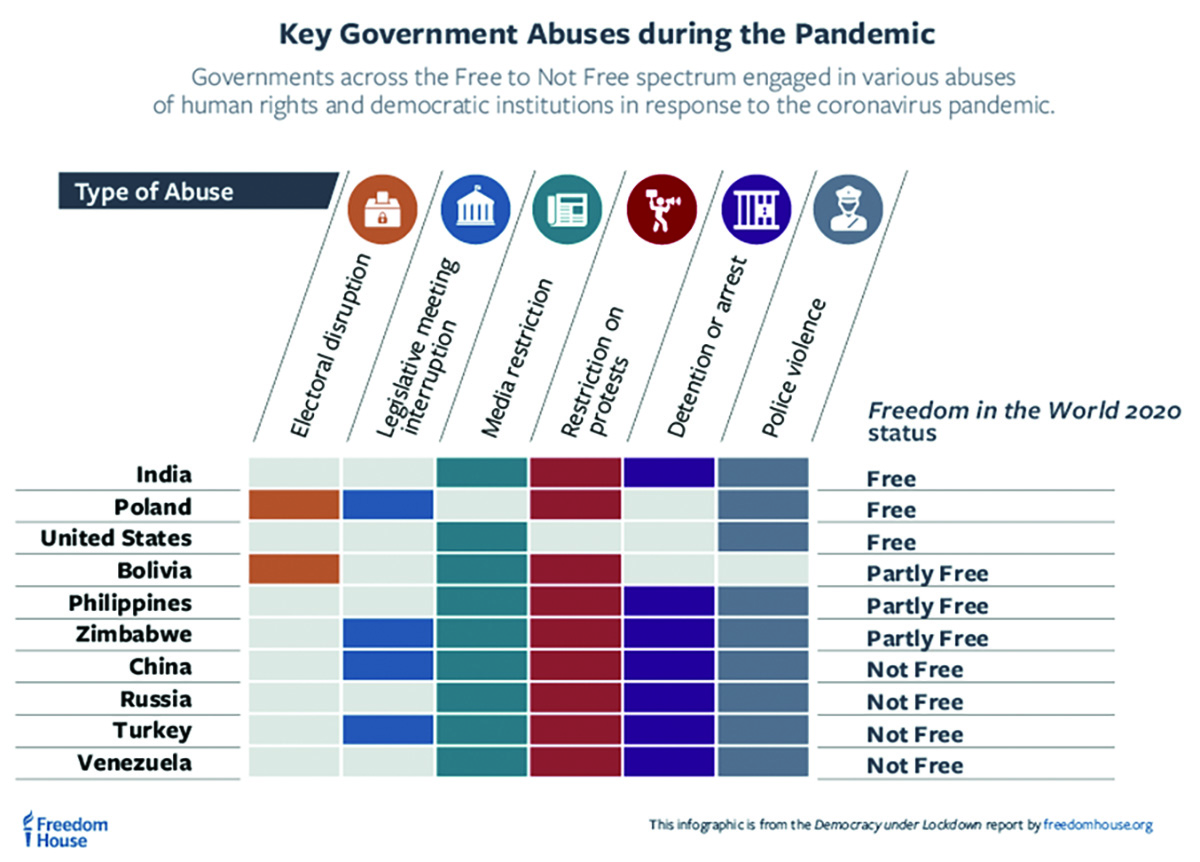Canada has gone against type, emerging as a site of global protest against coronavirus restrictions that many citizens (though not most) feel do too much to restrict civil liberties and human rights and have gone on for far too long without any clear delineation of when and on what basis they should end. The issue is the “Freedom Convoy” trucker protests, started by the apparently 90%-vaccinated truckers who have a deep philosophical objection to vaccine mandates and to the entire pandemic restriction regime more generally. They are using their physical and economic leverage as key workers with large vehicles to force the issue by shutting down the country’s small capital city and the bridge over which a plurality of U.S.-Canada trade flows. I condemn shutting down roadways, but I’m emotionally sympathetic to the protesters.

If you are an American who was ever in a jurisdiction where the government penalized private gatherings over some number of people, you should be clear that this was an emergency suspension of your First Amendment right to free association. If it was illegal to gather in large crowds in your city, protest was ruled de facto illegal. The Office of the United Nations High Commissioner for Human Rights notes that “the right of peaceful assembly includes the right to hold meetings, sit-ins, strikes, rallies, events or protests, both offline and online.” The initial “15 days to stop the spread” was set at that length because it was thought that 15 days was as long as these sorts of basic human rights could be suspended without practical and philosophical threats to the legitimacy of the government. In Europe, the generally left-wing international human rights organization Amnesty International noted by September 2020 that “COVID-19 is not only disrupting our lives but it is also fundamentally changing the context in which people can legitimately express dissent by participating in collective actions.” Amnesty noted cases in Greece, Germany, France, the United Kingdom, and elsewhere as places where high courts ruled in favor of protesters who had been illegitimately persecuted by the state on pandemic-related grounds. “The COVID-19 pandemic has fueled a crisis for democracy around the world,” read the intro to a report by Freedom House, one of Amnesty International’s peer groups. “The research strongly supports the hypothesis that the COVID-19 pandemic is exacerbating the 14 years of consecutive decline in freedom.”
In 1984, to invoke a cliche, the party sloganeers declare that “freedom is slavery.” It always seemed one of the more overwrought parts of the novel to me, to imagine that a population could become so obeisant and consumed by political enthusiasm that it would not notice the meaning of words being flipped. That’s why, two weeks ago, I wrote about a Canadian newspaper’s coverage of “
non-violent dangers
.” Canada’s government-funded CBC has outdone even that now, though, with a piece about how the word freedom “has become common among far-right groups, experts say.” Then, of course, come the quotes from “hate” experts, who note hate is a “malleable term” but not that they’re the ones bending it. In a section of the article titled “Concept of freedom can be used to reject equality,” we learn how “to see the word freedom bandied about as part of these protests points to a broader circulation of what Elisabeth Anker calls ‘violent’ forms of freedom.”
It is difficult to process that these words from Martin Luther King Jr.’s last speech are reactionary now: “Somewhere I read of the freedom of assembly, somewhere I read of the freedom of speech, somewhere I read of the freedom of press, somewhere I read that the greatness of America is the right to protest for rights.” It’s a real shock to learn that Amnesty International, Freedom House, and the UNOHCHR are far-right extremists now. But hey, experts say.






